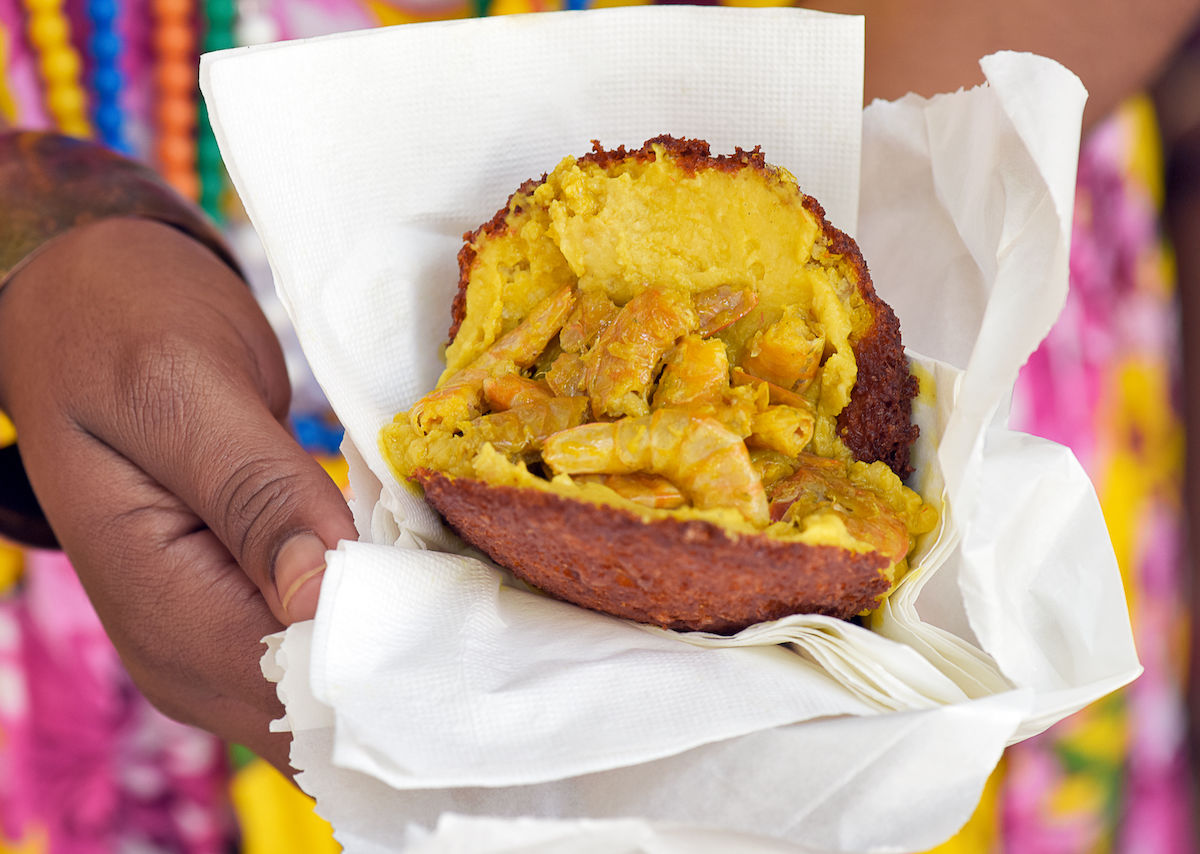Culinary Traditions Of Salvador: A Flavorful Journey Through Bahia
Share

Salvador, the capital of Bahia, Brazil, is a vibrant city known for its rich history, colorful culture, and, most importantly, its unique culinary traditions. The food here is a reflection of the diverse influences that have shaped the region over centuries, blending African, Indigenous, and Portuguese flavors into a delicious tapestry of dishes. This article will take you through the culinary landscape of Salvador, highlighting key dishes, cooking techniques, and the cultural significance of food in this enchanting city.
The Heart of Bahian Cuisine

Bahian cuisine is characterized by its bold flavors and use of fresh ingredients. At the heart of this culinary tradition is dendê oil, a palm oil that adds a distinct flavor and vibrant color to many dishes. This oil is often used in stews, sauces, and fried foods, making it a staple in Bahian kitchens.
Key Ingredients
The ingredients that define Salvador's culinary scene are as diverse as its culture. Here are some key components:
- Seafood: Given Salvador's coastal location, seafood plays a significant role in the local diet. Fish, shrimp, and octopus are commonly used in various dishes.
- Coconut: Coconut milk is frequently incorporated into stews and desserts, adding a creamy texture and rich flavor.
- Spices: A variety of spices, including chili peppers, garlic, and ginger, are used to enhance the taste of dishes.
- Vegetables: Fresh vegetables such as okra, tomatoes, and peppers are essential for creating vibrant and nutritious meals.
Signature Dishes of Salvador
Acarajé

Acarajé is perhaps the most iconic dish of Salvador. This deep-fried ball made from black-eyed peas is typically filled with a spicy shrimp paste known as vatapá and served with a side of caruru (a okra and shrimp stew). Acarajé is often sold by street vendors and is a popular snack among locals and tourists alike.
Moqueca
Moqueca is a traditional fish stew that showcases the flavors of Bahia. Made with coconut milk, dendê oil, and a variety of spices, this dish is slow-cooked to perfection. The fish is marinated in lime juice and spices before being layered with vegetables and cooked in a clay pot, allowing the flavors to meld beautifully.
Bobó de Camarão
This creamy shrimp dish is made with cassava (yuca) and coconut milk, creating a rich and satisfying meal. Bobó de camarão is often served with rice and is a favorite among locals for its comforting flavors.
Farofa
Farofa is a toasted cassava flour mixture that is often served as a side dish. It can be flavored with various ingredients, such as onions, garlic, and bacon, and is commonly used to accompany stews and grilled meats.
The Cultural Significance of Food in Salvador
Food in Salvador is more than just sustenance; it is a vital part of the city's cultural identity. Many culinary traditions are rooted in African heritage, reflecting the influence of enslaved Africans who brought their cooking techniques and flavors to Brazil. Festivals and celebrations often feature traditional dishes, showcasing the importance of food in community gatherings.
Culinary Festivals
Salvador hosts numerous culinary festivals throughout the year, celebrating the rich flavors of Bahian cuisine. One of the most notable is the Festival de Verão, where local chefs showcase their culinary skills and visitors can sample a variety of dishes. These events not only promote local cuisine but also foster a sense of community and pride in Bahian culture.
Best Time to Visit Salvador
The ideal time to experience the culinary delights of Salvador is during the dry season, which runs from November to March. During this period, the weather is warm and sunny, perfect for exploring the city's vibrant markets and street food scene. Expect temperatures to range from 75°F to 90°F (24°C to 32°C), making it comfortable for outdoor dining and festivities.
Where to Stay in Salvador
When planning your culinary adventure in Salvador, consider booking accommodations that are centrally located to easily access the city's top restaurants and markets. Here are some recommended hotels:
- Hotel Fasano Salvador: A luxurious option with stunning views of the bay and a renowned restaurant featuring Bahian cuisine.
- Pestana Convento do Carmo: A historic hotel set in a former convent, offering a unique atmosphere and easy access to local attractions.
For hotel bookings, check out this link: Hotels & Flights.
Getting Around Salvador
To fully enjoy Salvador's culinary offerings, it's essential to navigate the city efficiently. Public transportation options include buses and taxis, but for a more personalized experience, consider booking a transfer service. This allows you to explore at your own pace and discover hidden culinary gems. For transfers, visit this link: Transfers.
Conclusion: Savoring the Flavors of Salvador
Salvador's culinary traditions offer a unique glimpse into the city's rich cultural heritage. From the iconic acarajé to the comforting moqueca, each dish tells a story of the people and history that have shaped this vibrant city. As you plan your visit, prepare to indulge in a feast of flavors that will leave a lasting impression. Whether you're dining at a local restaurant or sampling street food, the culinary delights of Salvador are sure to tantalize your taste buds and create unforgettable memories.



